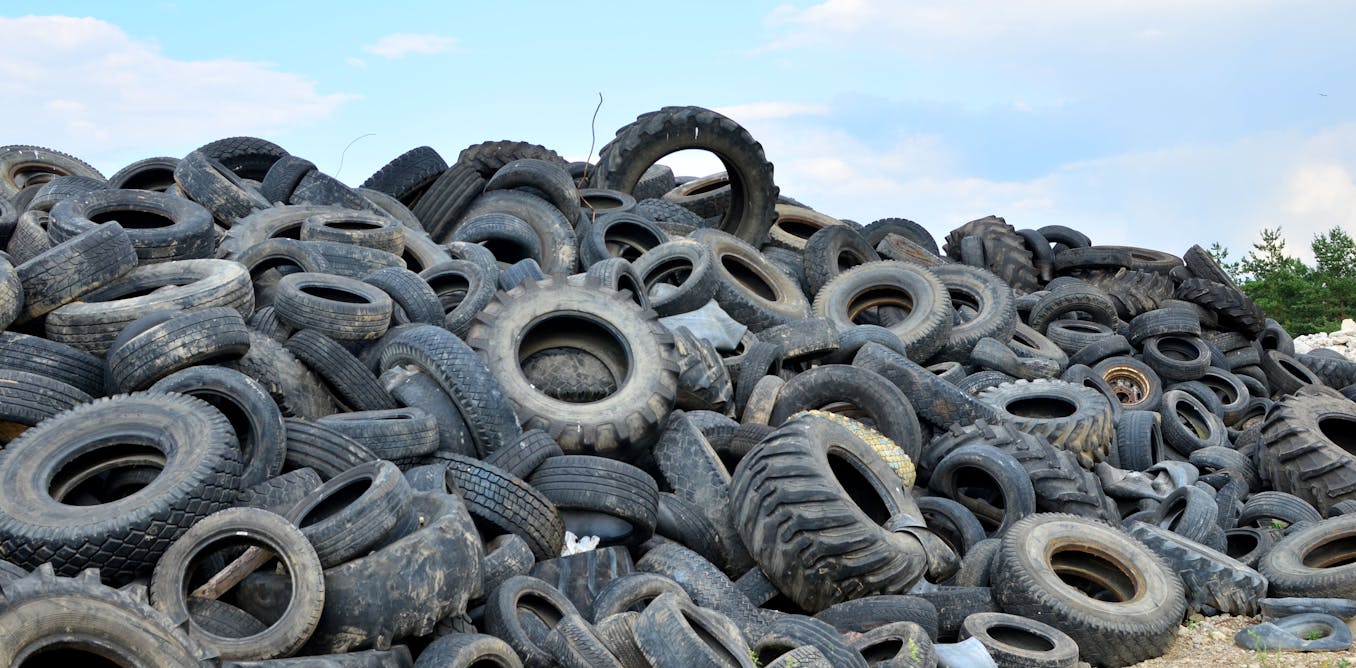
As the world continues to struggle with pollution and environmental issues, tire recycling, and sustainability have become key topics in the global conversation. With an ever-growing population, finding ways to reduce our carbon footprint while still meeting our needs is essential for creating a greener future.
Tire recycling offers a promising solution that has the potential to drive sustainable development in many countries across the globe. From reducing landfill waste to creating new products from old tyres, this emerging industry of tire recycling is proving its worth as we look towards more environmentally conscious solutions. As awareness grows about how tire recycling can contribute to sustainability goals, we must take action now on this critical issue if we want to create lasting change for generations to come.
Innovative Solutions for Sustainability in Tire Management
Tires are a valuable source of raw materials, and tire recycling is becoming increasingly important as manufacturers seek to reduce their environmental impact. Innovative solutions can help ensure the sustainability of tire management by helping companies make better use of existing resources.
For example, new technologies such as cryogenic grinding allow scrap tires to be shredded into powder that can be used in rubberized asphalt or other products. This process also eliminates the need for costly disposal methods such as landfills or burning.
Additionally, advancements in technology have allowed manufacturers to create more efficient production processes that reduce waste and energy consumption during manufacturing operations. With these types of improvements, it is now possible for companies to produce tires with improved durability while still meeting strict environmental regulations.
Moreover, initiatives like closed-loop systems provide an effective way for businesses to reuse old tires instead of sending them off to landfills or incinerators where they will release harmful gases into the atmosphere. From advances in recycling technology to increased efficiency measures at manufacturing plants, there are numerous innovative ways businesses can strive toward greater sustainability when managing their tire inventory and production processes.
Understanding the Impact of Tire Disposal on Our Environment

Source: newatlas.com
As the world continues to grapple with global warming and the effects of pollution on our environment, tire disposal becomes an ever-growing issue. Tires are made from a combination of rubber, metal, and textiles that can all have adverse effects on our planet when not disposed of properly.
Tire disposal impacts air quality due to chemicals released into the atmosphere during production as well as through leaching toxins into groundwater supplies. Burning tires can release dioxins and furans – both carcinogenic compounds – in addition to other toxic pollutants that contaminate soil and water sources.
In addition, tire stockpiling has become a serious problem in some areas; this affects local wildlife by decreasing their habitats or blocking access to food sources while also presenting potential fire hazards for nearby residential areas. Recycling tires offers numerous environmental benefits such as reducing landfill waste, conserving energy and resources required for manufacturing new tires, saving space needed for storage of used tires which would otherwise be stacked up in landfills or fields across cities worldwide, and providing alternative uses for old tires by repurposing them into products like rubberized asphalt roads or playground surfaces that are safe for children playtime activities.
The recycling process also helps reduce CO2 emissions because fewer new materials need to be produced thereby cutting down on fuel consumption during transportation processes associated with bringing those materials together from different locations around the globe. To ensure a greener future we must take steps now towards sustainable tire recycling practices so that we minimize any further damage caused by incorrect tire disposal methods while still preserving natural resources at same time.
With these measures in place, we can create a more eco-friendly landscape where everyone benefits!
Strategies to Promote Sustainable Practices in the Tire Industry
The tire industry is one of the most resource-intensive industries in the world. As the global population continues to grow, so does our reliance on tires for transportation and other needs.
To reduce environmental damage caused by tire production and disposal, companies must adopt sustainable practices. Here are some strategies to promote sustainability within the tire industry: 1) Utilize renewable energy sources when possible such as solar power instead of fossil fuels like coal or gas.
Companies should also invest in green technologies such as electric vehicles which can help reduce emissions associated with traditional automobiles. 2) Encourage recycling initiatives for old tires and rubber materials that have outlived their usefulness or are no longer usable due to age or wear and tear.
This not only helps conserve resources but also reduces waste from going into landfills where they may remain for hundreds of years before breaking down naturally. 3) Implement eco-friendly manufacturing processes that minimize water consumption, air pollution, and hazardous chemicals used during the production stages of making a new set of tires from start to finish.
Companies should strive towards using cleaner production technologies like those found at closed-loop factories which reuse any solvents or oils used during the fabrication process before releasing them into streams near natural habitats. 4) Develop innovative ways to repurpose scrap material generated from recycled tire products into useful items such as playground grass surfaces, rubberized asphalt roadways, artificial turf fields, etc.
, thus reducing landfill waste while providing additional economic opportunities throughout society’s supply chain management system overall
Conclusion

Source: theconversation.com
Tires are an essential component of any vehicle, providing safe and reliable transportation to millions each day. However, due to the high production rate of tires worldwide, tire recycling has become a critical issue in terms of sustainability.
With the growing demand for greener solutions on the rise, it is clear that tire recycling can play a significant role in our efforts towards achieving environmental goals. By promoting sustainable practices such as reusing and repurposing old tires into new products or materials, we will pave the way for a cleaner and healthier future while preserving valuable resources along the way.
Through collective action and responsible initiatives from individuals, businesses, and governments alike we can make meaningful progress towards creating a more sustainable world through tire recycling.



